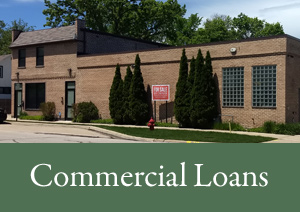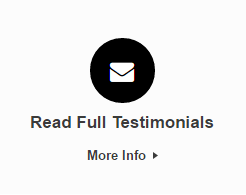Post
Can Self-Employed Individuals Qualify for Competitive Mortgage Rates?

The landscape of employment is changing rapidly, with more individuals choosing self-employment over traditional jobs. Whether driven by a desire for flexibility, pursuing a passion, or responding to market opportunities, being self-employed offers a unique pathway to earning a living. However, amidst the perks of autonomy and independence, self-employed individuals often encounter hurdles when it comes to securing financial products, particularly mortgages.
The burning question for many in this category is whether they can indeed qualify for competitive mortgage rates akin to those with traditional employment. In this article, we will delve into this topic, exploring the challenges self-employed individuals face, the requirements for mortgage qualification, strategies to enhance eligibility, available mortgage options, and tips for navigating the application process.
Understanding the Challenges for Self-Employed Individuals
Self-employment brings with it a slew of challenges, especially in the realm of mortgage qualification. Unlike their counterparts with stable jobs, self-employed individuals often lack traditional income documentation such as W-2 forms. Instead, they must rely on alternative documentation like bank statements, profit and loss statements, and tax returns. Moreover, the nature of self-employment often results in fluctuating income, making it challenging for lenders to gauge borrowing capacity accurately. This unpredictability may lead to perceptions of higher risk among lenders, potentially resulting in less favorable terms or outright rejections.
Requirements for Qualifying for a Mortgage as a Self-Employed Individual
To qualify for a mortgage, self-employed individuals must navigate a complex landscape of requirements. Primary among these is documentation of income. While W-2 forms are not available, self-employed borrowers can provide alternative documentation, including bank statements reflecting regular deposits, profit and loss statements demonstrating business profitability, and tax returns showcasing income over time. Additionally, lenders scrutinize credit scores, debt-to-income ratios (DTIs), and down payment amounts. A strong credit profile, low DTI, and substantial down payment can bolster eligibility for competitive mortgage rates.
Strategies to Improve Eligibility for Competitive Mortgage Rates
Enhancing eligibility for competitive mortgage rates requires strategic planning and proactive measures. Stabilizing income is paramount, with self-employed individuals advised to establish consistent earnings by diversifying income sources and minimizing income fluctuations. Building a robust credit profile is equally essential.
Timely bill payments, maintaining low credit card balances, and monitoring credit reports for inaccuracies can contribute to a healthy credit score. Moreover, reducing debt-to-income ratios by paying off existing debts and avoiding new ones can strengthen eligibility. Increasing down payment amounts is another avenue to explore, as larger down payments can offset perceived risk and result in more favorable terms.
Exploring Mortgage Options for Self-Employed Individuals
Self-employed individuals have a range of mortgage options at their disposal, each with its own eligibility criteria and requirements. Conventional mortgages, backed by Fannie Mae or Freddie Mac, typically require stringent documentation but offer competitive rates for borrowers with strong financial profiles. Federal Housing Administration (FHA) loans, designed to assist low-to-moderate-income borrowers, may be more accessible to self-employed individuals with less-than-perfect credit or smaller down payments.
Veterans Affairs (VA) loans, exclusive to military veterans and active-duty service members, offer favorable terms, including zero down payment options. Portfolio loans, held by the lender instead of being sold on the secondary market, may provide flexibility in underwriting criteria, making them suitable for self-employed borrowers with unique financial situations. Non-qualified mortgage (non-QM) loans, not meeting conventional mortgage standards, cater to borrowers with unconventional income sources or credit histories.
Tips for Navigating the Mortgage Application Process as a Self-Employed Individual
Navigating the mortgage application process can be daunting for self-employed individuals, but proper preparation can ease the journey. Organizing financial documentation in advance, including bank statements, tax returns, and profit and loss statements, is crucial.
Working with a lender experienced in catering to self-employed borrowers can provide valuable guidance and support throughout the process. Be prepared to provide additional documentation and explanations to substantiate your income and financial stability. Consider obtaining pre-approval for a mortgage to streamline the process and demonstrate your seriousness as a buyer.
Conclusion
In conclusion, self-employed individuals can indeed qualify for competitive mortgage rates, albeit with diligence and strategic planning. Despite the unique challenges they face, self-employed borrowers can enhance their eligibility by stabilizing income, building strong credit profiles, and exploring suitable mortgage options. At 1st Eagle Mortgage, we recognize the diverse needs of self-employed borrowers and are committed to helping them navigate the mortgage landscape successfully. Whether you’re a freelancer, consultant, or small business owner, homeownership is within reach with the right approach and support.
April 13th, 2024 by Herb Levin
No comments yet




